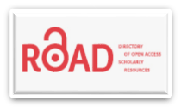Non-traditional components in baking: problems and prospects
https://elibrary.ru/IBTWFC
Keywords:
bakery products; enriching additives; microalgae; blue-green algae; cyanobacteria; spirulinaAbstract
The popularization of a healthy lifestyle and the deterioration of the ecological situation in the world stimulate society to consume therapeutic and preventive products. In this regard, accumulated research on the composition, methods of introduction and dosages of various additives in the creation of bakery products for functional purposes contribute to their intensive implementation in the modern food market. The expansion of the range of enriched bread, the use of which will meet the body’s need for essential macro- and micronutrients for an active and healthy lifestyle, is relevant. The segment of enriched bakery products is extremely limited, and their assortment does not always meet the modern needs of the population. A feature of the market for bread and bakery products is the stability (and even growth) of consumption during periods of economic downturn. Bread for most people is traditionally an integral part of everyday nutrition; it is considered the cheapest source of carbohydrates. In conditions of economy, consumers refuse to buy more expensive products, but not bread. A sociological study showed that respondents express a positive attitude towards products enriched with non-traditional components. The use of spirulina microalgae as an enriching additive for bread production can make it more nutritious and beneficial for health. Adding spirulina improves the quality indicators of bread and allows you to get standard quality products with good organoleptic characteristics.
Downloads
Published
Issue
Section
License
Copyright (c) 2024 В.А. Хлебникова

This work is licensed under a Creative Commons Attribution 4.0 International License.







 .
.
